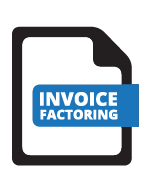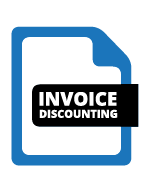Invoice Finance
- Quick and simple online application
- Receive up to three competitive quotations from our approved lenders
- Application matched only with lenders that will consider supporting your unique circumstances
- Benefit from the relationship we have with our lenders, ensuring a prompt decision and sensible pricing
How could Invoice Discounting or Factoring help my business?
Running a business can be extremely stressful, cash-flow issues can become a huge headache, preventing you from achieving the goals of your company. Invoice Finance and Factoring are a great way of increasing the speed of the cash flow cycle within a business, allowing you to utilise the funds locked up in your sales ledger. Having funding in place that will grow in line with sales could allow you to get on with doing what you do best and actually running your business, instead of constantly worrying about cash.
It’s quite a straight forward form of finance, so long as you complete the works in full as per the purchase order ensuring contract law has been complete allowing you to request payment through invoice for the services or products delivered. Once this has been complete, you simply upload your invoices to your chosen service provider where they will release you funds at a set percentage against your approved invoices, thus allowing you to reinvest the generated funds back into the business generally within 24 hours. This quick influx of cash could allow you greater buying power, possible bulk discounts and simply the ability to say yes to a lucrative order.
Invoice Finance and Factoring can alleviate the pressure of cash flow restraints, allowing your business to offer extended terms where necessary in order to win profitable business. The industry standard is where the financier will fund the approved debts up to 90 days from the month end date of invoice, but again there are some financiers who will go up to 120 days month end from the date of invoice.
Most financiers will release between 70 and 85%, but some will consider going higher for the right business which has a strong process for debt collectability. The stronger the audit trail with regards to the debt, the easier it is to collect the invoices and the more likely that the invoice finance provider will offer an increased advance rate.
The most appropriate advance rate would be 80%, allowing you to only reinvest the funds due to the company leaving the revenue monies available, thus ensuring that you can reach your HMRC’s commitments when they become due.
How much does Invoice Finance cost?
It should be noted that both Invoice Discounting and Factoring will differ slightly in costs. Factoring is generally priced slightly higher due to the close involvement of the ledger management and credit control of the financier. With regards to Invoice Discounting the responsibility for ledger control and credit collection remains with you therefore reducing cost.
As you will see below we have created a cost estimation calculator that will help to provide you with a general guide as to how much you are likely to pay for an invoice finance facility.










